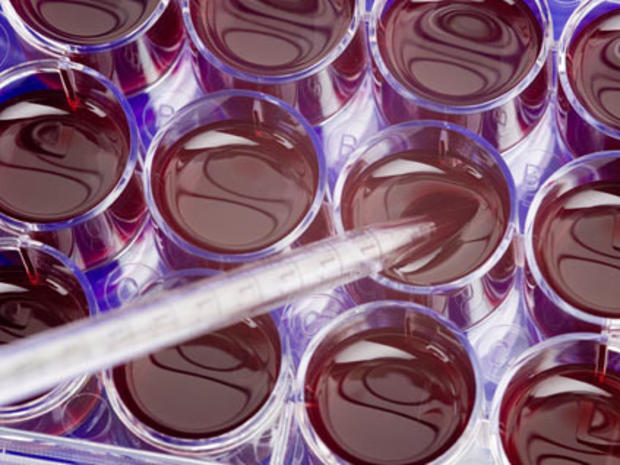Doctors use stem cells to treat angina patients, report promising results
(CBS) Doctors think they've found another use for stem cells. Following newsthat Swedish scientists implanted the first stem-cell made windpipe into a cancer patient, U.S. doctors announced the tissue-derived cells may help sufferers of debilitating chest pains.
And the Northwestern University doctors behind the study are optimistic the cells may change they treat patients with heart problems.
Pictures: First lab-grown windpipe saves cancer patient
"We believe this is an important milestone in considering whether the body's own stem cells may one day be used to treat chronic cardiovascular conditions," study author Dr. Douglas W. Losordo said in a written statement.
About 850,000 Americans suffer from persistent angina and don't respond to available treatments.
"Their activities are severely restricted by their chest pain and right now we have little to offer them," Dr. Gordon Tomaselli, president of the American Heart Association, told WebMD.
Cue the stem cells.
Doctors injected the hearts of 167 patients with severe angina with either low or high-doses of stem cells or a placebo, for the study published in Circulation Research. What did they find? Six months following the experiment, patients treated with stem cells suffered an average of seven angina attacks per week, compared to 11 in the placebo group. After a year, the stem cell patients suffered six attacks per week compared to 11 in the placebo group, and didn't use nitroglycerin as often to quell their chest pains.
Losordo told WebMD the treatment had "life-altering" effects for the stem-cell -treated patients.
"To put it in human terms, patients who might have been able to sit and watch TV without symptoms could now walk at a normal pace without chest pain, and someone who could walk at a slow pace might be able to ride a bike."
And Dr. Tomaselli agreed. "The results are pretty undeniable," he told WebMD. "The next step is to prove the treatment is clinically useful."
The National Institutes of Health has more on stem cell research.

